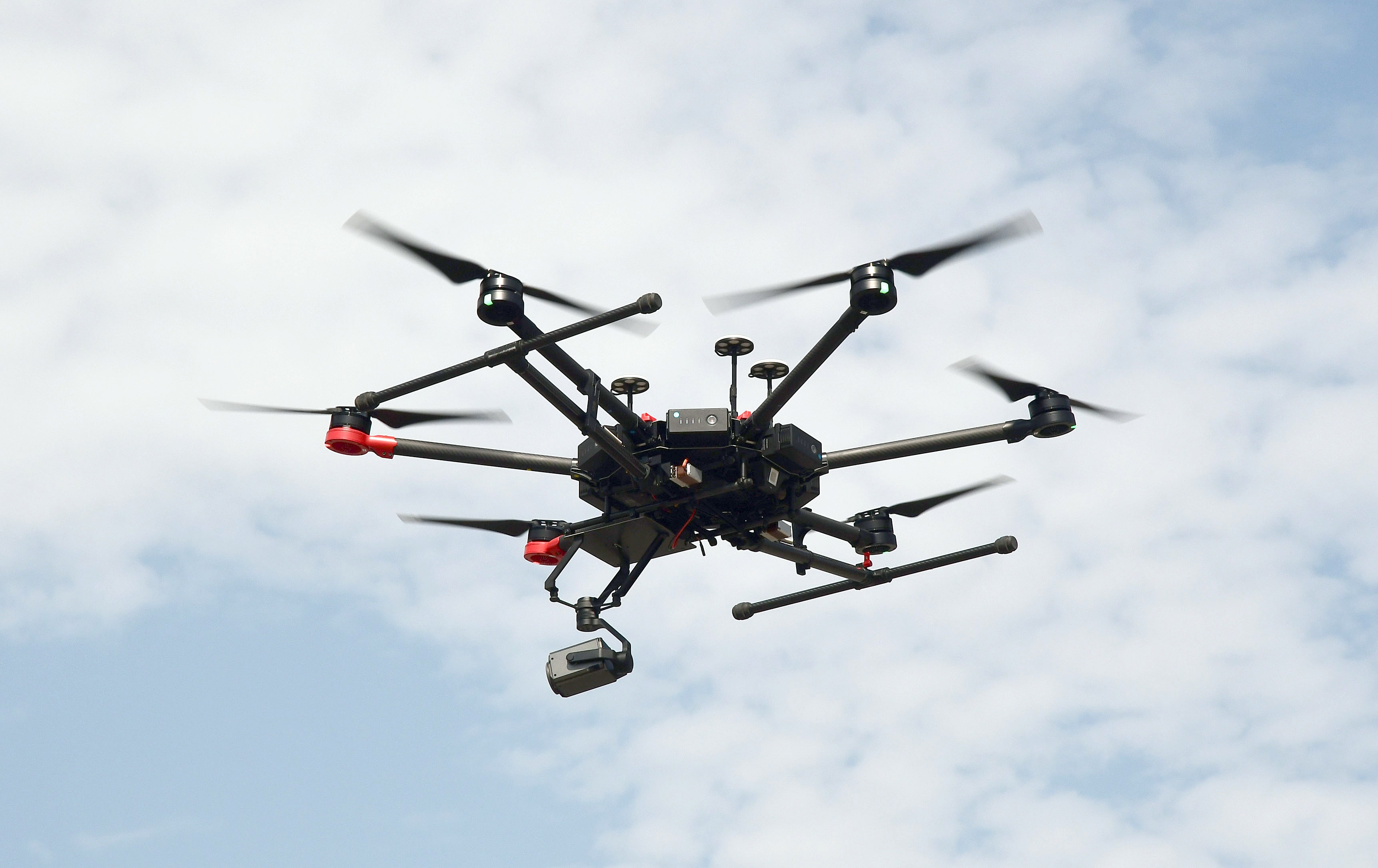Big Agrochem Firms May Use Drones For Chemical Spraying This Kharif Season

Major plant protection companies, including biggies like Bayer, Syngenta, Dhanuka Agritech, BASF, UPL and Insecticides India Ltd (IIL), are planning to use drones on an experimental basis to spray chemicals this kharif season to understand its pros and cons before large-scale adoption for commercial use.
However, for some, the prohibitive cost of drones and the scarce availability of good quality drones is acting as a hindrance in realising some of the plans, market players and industry sources said.
Industry sources estimate that drones could be used for spraying pesticides and other plant chemicals in around 30,000 acres this kharif season largely as pilot projects.
Together the big names command over 80 per cent of the total plant protection chemical market in India.
“I think the biggest limitation in using drones for spraying plant chemicals will come from small and marginal farmers as their financial heft is limited. Drones can become successful with large farmers who have big contagious land parcels, not in places where land parcels are small,” Dr Kalyan Goswami, director general of Agro-chem Federation of India (ACFI), told Business Standard.
ACFI is the apex agro chemical federation. It works as the interface between the government and the agro chemical industry.
Goswami said that large farms in western Uttar Pradesh, Punjab, Haryana, the cotton, soybean and chili growing regions of Andhra Pradesh and Telangana are the areas where drone application could be more successful in the initial stages as compared to other parts.
Also read: As kharif season sets in, India eyes long-term fertiliser contracts
“The physto-toxicity of the chemicals (whether the plant chemicals sprayed from the air is harming other nearby crops) or whether the chemicals need to diluted or not etc for aerial spraying will only be known once the pilots are over and substantial amounts of data is generated to make a proper analysis,” Goswami said.
Only then can a full-fledged commercial application of drones for the plant chemicals industry can be considered, he added.
Several players said the short-run time of a commercial drone is a hiccup in large –scale adoption in early stages.
“Usually, in single charge, a drone runs for less than 20 mins and sprays around 1.5-2 acres of land, which makes the per acre cost higher for an average farmer with small land size. This needs to come down to ensure widespread application of drone technology,” a senior industry official said.
Simon Wiebusch, country head - Bayer CropScience Division in India, Bangladesh and Sri Lanka said that commercial viability of drones and their safety concerns need to be strictly addressed before going all out on the technology and its applications across all fields.
Bayer plans to use more than 50 drones in this kharif season for various pilots across the country.
“FPOs is a model which can be looked at to quicken the adoption of drones for commercial use and in crops, we see its usages in wet rice fields, corn and sugarcane fields etc,” Wiebusch told Business Standard.
The central government on its part, a few months back, had released a comprehensive SOP on drone application for pesticides use.
The SOPs, according to the agriculture ministry, cover important aspects like statutory provisions, flying permissions, area distance restrictions, weight classification, overcrowded areas restriction, drone registration, safety insurance, piloting certification, operation plan, air flight zones, weather conditions.
They also include SOPs for pre, post and during operation period, emergency handling plan, etc.
The SOPs state that aerial application of pesticides through drones will be allowed subject to certain provisions.
For instance, operators should use only approved pesticides and their formulations at approved concentration and height.
Operators have to ensure washing, decontamination and first-aid facilities and notify the public about aerial application of pesticide not less than 24 hours in advance through competent authorities.
Further, the pilots should undergo specialised training, including clinical effects of insecticides, SOPs added.
That apart, sources said over 400 chemicals and their formulations have been approved for drone applications for this kharif season.
Meanwhile, Insecticide India Ltd, another big name in the plant chemical business, is using drone technology for spraying its insecticide in collaboration with private companies.
So far, the company has already done trials at 5-6 locations of different states which include Maharashtra, Madhya Pradesh, Uttar Pradesh. Rajasthan, Karnataka.
“We have a team of around 500 people who are monitoring the trial results at various sites and trying to understand the various facets of using drone technology for pesticides use including the kind of drones to be used, the spray nozzles, whether the chemical composition needs any alteration for drone application etc. Once these are well established then only, we can think of launching it for commercial application,” Rajesh Aggarwal, MD, Insecticide India Ltd, said.
He said that drone trials were being carried out by his company in around 100 acres of land to understand its viability.
Stablecoin The Future Of Currency?
The payments system is undergoing a quiet but consequential shift. What was once the exclusive preserve of central banks... Read more
BoE Loosens Capital Rules
The Bank of England has taken a significant step towards easing post-crisis regulation by lowering its estimate of the c... Read more
Monzo Looks For US Banking License
Monzo is preparing a renewed push to secure a US banking licence, four years after abandoning its first attempt when tal... Read more
Crypto Firms Push Into US Banking
America’s cryptocurrency companies are scrambling to secure a foothold in the country’s traditional banking system, ... Read more
Parallel Banking: Stablecoins Are Now Global
Parallel Banking: How Stablecoins Are Building a New Global Payments SystemStablecoins—digital currencies pegged to tr... Read more
JPMorgan Deploys AI Chatbot To Revolutionize Research And Productivity
JPMorgan has deployed an AI-based research analyst chatbot to enhance productivity among its workforce, with approximate... Read more

